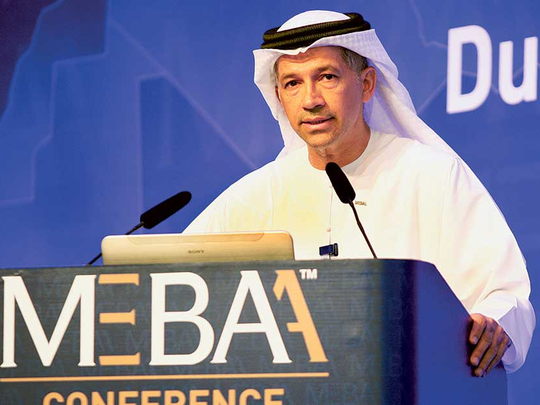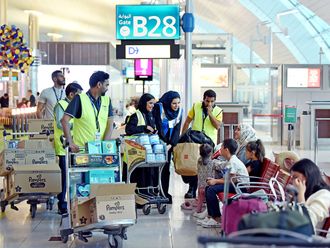
Dubai: Five of the six Gulf Cooperation Council members are set to sign a memorandum of understanding (MoU) early next year in what could be a step towards reaching a regional air space agreement to ease congestion.
The five members — UAE, Bahrain, Oman, Qatar and Kuwait — are in talks to sign a MoU that will recognise each states certification of aviation training academies and maintenance companies.
“This is an initial step … until we come to a final objective of a unified regulation,” Ahmad Nemat Ali, Undersecretary for Civil Aviation Affairs at Bahrain’s Ministry of Transportation, told Gulf News at a conference in Dubai on Sunday.
The five states are signing the MoU to remove unnecessary duplications of certificates and resources.
No reason was given as to why Saudi Arabia would not be signing the accord, however, unlike some other GCC members; Saudi Arabia aviation regulation follows the United States’ Federal Aviation Administration. Others follow the European Aviation Safety Agency.
An MoU recognising each member’s certification of training academies and maintenance companies may not be significant; however, the six-member Arab Gulf bloc has been in talks for several years to reach a unified airspace agreement.
Many of the states so far seem unwilling to budge on sharing authority over each other’s airspace, which is a sovereign right under the Chicago Convention, despite pressure on the region’s fast growing airlines flying through congested airspace.
“We are working towards having a unified airspace … [but] these things are not straight forward issues,” Ali said.
He said airspace will remain a sovereign right and that the region’s aviation authorities are working “towards a commonality of flight plans [and airspace] permissions.”
Ali said the GCC members, including Saudi Arabia, could finally break ground on an airspace agreement to the end of 2015 or early 2016.
“We have to have [a solution] … airlines are suffering,” he said.
However, Laila Al Muhair, Assistant Director General — Strategy and International Affairs at the UAE General Civil Aviation Authority (GCAA), said in September, “I cannot put a deadline for a political solution.”











